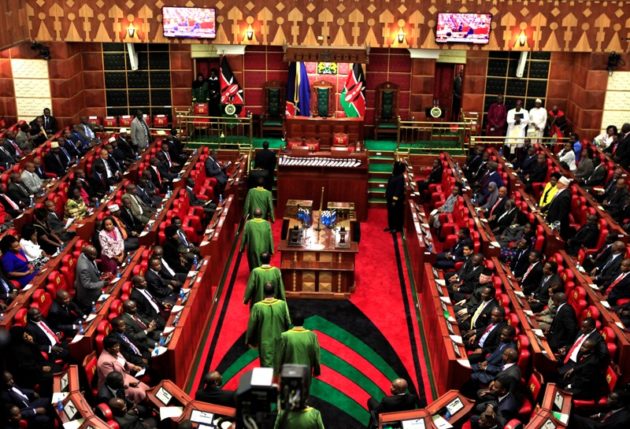President William Ruto’s pet housing project has moved a step closer to realization after his troops bulldozed the Affordable Housing Bill, 2023 through the third reading in the National Assembly.
All the amendments proposed by the joint committee sailed through the Wednesday session while opposition MPs were frustrated and stormed out of the House after their amendments were defeated on the floor.
Among the key amendments carried during the third reading include giving the discretion to the Treasury Cabinet Secretary to determine what percentage would be paid by a would-be owner of the house before occupancy.
The original Bill had indicated that one would need to pay 10% deposit before occupying the house.
Employers and employees who default in remitting the levy would be subject to tax recovery procedures in the current law.
MPs also voted to empower the fund board to allocate money to institutional housing and for off-take of housing projects.
Loans would be paid on reducing interest, with the new dispensation barring buyers from changing units aimlessly.
Lawmakers affiliated to Azimio la Umoja One Kenya however held that there were many gaps with the legislation as proposed.
Among their concerns was that the Kenya Revenue Authority (KRA) would harass people including informal sector workers, with the Bill stating that even the non-salaried would be required to pay 1.5% of their income although the mechanism of collecting their contribution was not clear.
It is now expected that the Bill will be rushed to the Senate for the first reading with Kenya Kwanza targeting March salaries to be deducted the said affordable housing tax.
Majority Leader Kimani Ichung’wah was bullish after the passage of the Bill as he castigated opposition MPs for walking out of the House after they knew their proposals won’t sail through.
“This Bill is about employment creation, it is about wealth creation. It’s about helping Kenyans to access affordable homes, creating new homeowners and therefore generating new wealth in our country and helping to grow our economy that was destroyed by those who are telling us today that when they look back they feel like crying,” stated Ichung’wah.
“They have every reason to cry because if in ten years you could only build 1,900 houses, but you now see an administration which in less than a year is doing close to 40,000 houses and is on the verge of accomplishing the promise to do a minimum of 200,000 units per year.”



